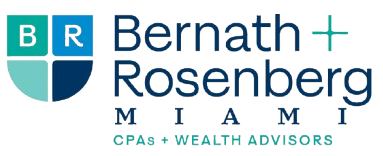By Ted Stricker, CFP®
There’s still time before year-end to strategize ways to lower your capital gains taxes for 2024. Here are our top ideas:
Mindfully Defer Until Next Year
You might defer selling the appreciated asset (property or financial-market investments) until after the new year. While this may seem obvious, we counsel our clients to consider and compare this year’s tax situation with what next year may look like before making the choice. If it appears that next year’s taxable income and gains may be lower, then deferring the realized gain until next year may make sense. Alternatively, if income/gains are expected to be higher, then swallowing the tax bite this year instead may be preferable.
Take Losses on Investments to Offset Gains
Even though the financial markets have been generally positive over the past two years, you might still have investments in your taxable accounts with a current value below the cost, and therefore carrying an “unrealized” loss. By selling one or more of these before the end of the year (and “realizing” or booking the loss), you can use these losses to offset other gains you have booked and reduce the aggregate gain that is taxable for this year.
If you still wish to retain this impacted investment for the future, you only need to wait 30 days after the sale to repurchase it to avoid triggering the “wash-sale” rule and disallowing the loss incurred. Another alternative is to purchase another similar-type investment; this can be done concurrently or shortly thereafter and will not incur the wash-sale consequence.
Switch to Tax-Efficient Investments
One common complaint about mutual funds by investors with taxable investment accounts is the often-surprising amount of capital gains taxes they incur by the end of the year, even though the investors don’t sell any of their shares. This occurs primarily because mutual-fund portfolio managers may buy and sell holdings within the fund throughout the year. Each time they sell a holding at a profit, a capital gain occurs (as does a capital loss on non-profitable sales). If the aggregate activity of the managers results in a net gain, this gain is then passed down to the shareholders (via Form 1099-I) and the shareholders are proportionately liable for the taxes on the net gains.
For those in higher marginal tax brackets, it may be better to switch their taxable investments to more tax-efficient vehicles, such as index-based Exchange-Traded-Funds (ETFs). Since the investment is based chiefly on a target index (such as unmanaged S&P 500), there is usually much less buying and selling of internal holdings, and therefore comparatively less internal gains to worry about at year-end.
Fully Utilize Tax-Advantaged Investment Accounts
If given a choice between contributing to taxable accounts versus tax-advantaged ones (such as 401(k)/403(b) accounts, an IRA or Roth IRA), unless there is a need for access to the money in the near future, it’s often best to opt for the tax-advantaged account. In addition, if your investment style is one of active trading, you should consider using your tax-advantaged accounts for these strategies and your taxable account(s) for your more passive investing.
Open and Fully Contribute to an HSA
If you are participating in a high-deductible healthcare plan, make sure you open and each year fully contribute to a health savings account (HSA). HSAs are one of the few investment accounts where you receive a triple-benefit: 1) the contributions are tax-deductible, 2) the account grows tax-deferred and, 3) distributions are tax-free when used for qualifying medical expenses. If used properly, capital gains and their taxability are a non-issue with this type of account.
Fulfill Charitable Intentions and Gifting
As we described in our blog post last month, charitable giving can serve many purposes in your financial life: fulfilling faith-based values and core beliefs, strategic asset management within your financial plan, and effective tax-planning techniques. Charitable giving can be accomplished in several ways, including direct gifts of appreciated assets to charitable organizations or donating high-gain assets to a donor-advised fund (DAF).
Another strategy used by higher-income families is to use the Annual Gift Exclusion (or part of their Lifetime Gift Exclusion) to give appreciated assets to family members who are in lower (or the lowest) marginal tax brackets. The assets under their new ownership may then be sold within the lower/lowest brackets and the tax on the gains may end up being lower as well—or even zero!
Be Strategic With Property Sales
Investment real estate sales can bring up numerous tax issues. Not only may there be substantial capital gains taxes, but rental real estate sales often include “depreciation recapture” taxes on accumulated depreciation deductions taken during the ownership period. This can be a nasty surprise to rental real estate sellers at tax time.
To avoid both capital gains and depreciation recapture taxes, many investors utilize the Section 1031 Like-Kind exchange technique, where sales proceeds from taxable asset sales are immediately rolled into a similar “like-kind” asset purchase (e.g., one investment property into another). This is accomplished under strict rules and timelines to be effective, but does defer the taxes incurred on the sale of property.
If You Have Questions, Speak With Us
Tax planning is a core service we offer at Bernath + Rosenberg, and we’re here to help! By coordinating your tax strategies with your overall financial planning and long-term goals, our assistance could be beneficial to your financial future. Our experienced team of Certified Public Accountants and CERTIFIED FINANCIAL PLANNER® professionals stays current with the latest in tax laws and planning strategies to help you pursue a rewarding and comfortable retirement, according to your unique and special objectives.
To get started and make the most of your hard work, schedule a meeting by calling (212) 221-1140 or email tstricker@brwealth.com.
About Ted
Ted Stricker is a partner and financial advisor at Bernath + Rosenberg, a full-service accounting, tax, and wealth management firm with offices in Monsey, NY, Lakewood, NJ, Cedarhurst, NY, and Miami Beach, FL. The firm demonstrates a personalized approach to custom-tailored solutions and an unwavering commitment to client service. With over 26 years of experience in the financial services industry, Ted manages the firm’s wealth management team, and specializes in designing financial plans for business owners and affluent families. Since joining the team in 2015, he provides practical and sound advice, combining innovative approaches and solutions that reflect clients’ personality, lifestyle, and goals.
For the ninth year in a row, Bernath + Rosenberg has been named as one of the leading CPA firms in financial planning by Accounting Today, a publication that receives hundreds of submissions each year and features the Top 150 Firms in the nation. Ted is a CERTIFIED FINANCIAL PLANNER® practitioner and is a member of the Financial Planning Association. To learn more about Ted, connect with him on LinkedIn.

